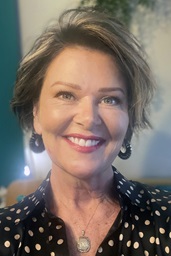FREETOWN, Sierra Leone (UMNS) — A new school building, a completely re-modeled school building and 16 community toilets represent the first fruits of a collaborative United Methodist effort to improve rural life in this West African nation.
The United Methodist Church in Norway, with support from the Norwegian government, is funding a five-year, $1.5 million partnership with the Sierra Leone Annual Conference to start community development projects in rural Sierra Leone.
The school buildings and community toilets are the pilot phase of what the Sierra Leone Annual Conference is calling its Community Empowerment for Livelihood and Development (CELAD) program.
The potential exists for many more projects focused on the CELAD strategies of increasing community and women’s empowerment, boosting food security, improving infrastructure development and expanding access to education and training.
“Sierra Leone is in the first of a five-year contract. If you do what you have promised to do, then Norway will think of extending for another five years,” Nils Atle Krokeide, a Norwegian government program consultant, told Sierra Leone Annual Conference officials at a meeting in Freetown Sept. 9.
The CELAD pilot efforts include a new United Methodist junior high school in Jendema that will, beginning this school year, serve children who have had to travel roughly 15 miles across the border into Liberia for equivalent schooling.
Both the school dropout rate for girls and the teenage pregnancy rate are unusually high in this part of Sierra Leone. Many of the motor-bike drivers who take girls to school have been known to induce those who can’t pay their taxi fares to have sex, leading to pregnancy and dropouts.
The new local school should, among other benefits, drastically reduce that problem, officials said.
In Lungi, a one-classroom mud-and-stick structure is being transformed into a fully-equipped three-classroom building. The old building leaked profusely during the rainy season, leading to closure of classes.
And some students who, for lack of space, were shut out of the Lungi school, have had to walk about three miles to another town to further their education. That will end with the rehabilitation of the old building.
“We appreciate CELAD … as our children will no longer have to walk to Moyamba everyday,” Kadie Mbayo, a parent, said at the launching of the Lungi school project.
Access to toilets is rare in Yonibana, and the 16 community toilets CELAD is placing there are expected to reduce pollution of a nearby stream, as well illnesses related to that pollution.
“We are pleased with what we saw in Yonibana,” said Dyvind Aske, General Secretary of the Board of Missions of the United Methodist Church in Norway, at the Sept. 9 meeting. “The people appreciate the developments going on in their community.”
The United Methodist Church in Norway has been sponsoring community projects in rural Liberia since 2008, dealing with education, health, agriculture and clean water. So the Liberia Annual Conference’s community development ministry has been providing support to the Sierra Leone Annual Conference’s CELAD team.
A regional center has been established in Freetown to document community development experiences from Sierra Leone and Liberia, and to share academic research from universities in Norway, Sierra Leone and Liberia.
A regional steering committee – including the United Methodist bishops from Sierra Leone and Liberia, as well as Norwegian representatives – participated in the recent Freetown meeting, and reviewed and approved projects. That replaces the older, slower method of proposals being sent to the United Methodist Church in Norway, with further review by Norwegian government officials.
The new approach depends on the principles of democracy and accountability, Krokeide emphasized Sept. 9, citing the New Testament story of Ananias and his wife Sapphira as a strong reason for why the church must not allow dishonesty and fraud.
Bishop John Innis of the Liberia Annual Conference credited Jonathan Kaipay, director of the conference’s department for community services, with overseeing projects there in a transparent, accountable way that fosters confidence.
“He has brought credibility to the Liberia Annual Conference and credibility to the people of Liberia where corruption is rampant,” Innis said.
Innis added, in remarks to the Sept. 9 gathering in Freetown, that the Norwegian-funded projects had made a big difference in Liberia.
“We are now in places where there have never been schools,” Innis said. “Now the children in those communities are learning and the communities openly express their joy when we visit them. My friends, we thank God for what the Norwegian Church is doing in Liberia.”
*Phileas Jusu is communications director for the Sierra Leone Annual Conference.
Like what you're reading? Support the ministry of UM News! Your support ensures the latest denominational news, dynamic stories and informative articles will continue to connect our global community. Make a tax-deductible donation at ResourceUMC.org/GiveUMCom.





